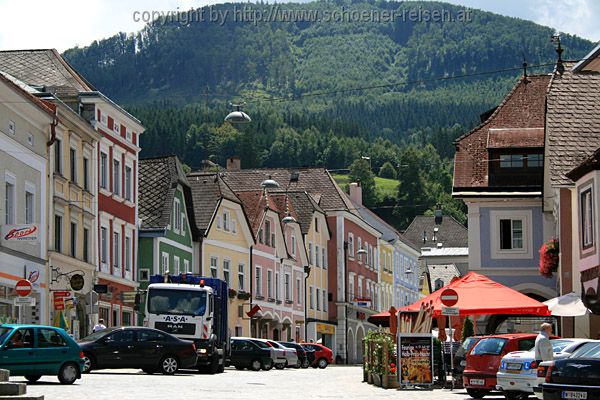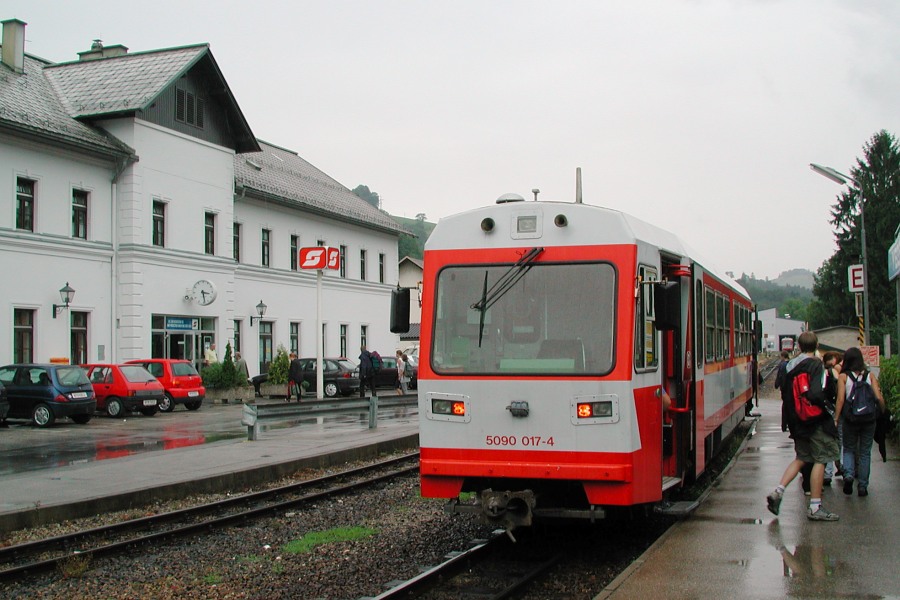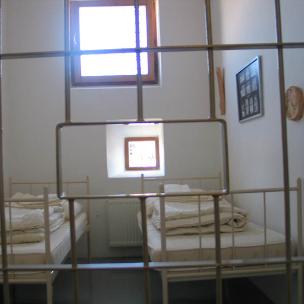I have had the pleasure last weekend to attend the ball of the business academy where I teach in Waidhofen. Austrian balls are similar to American proms, but with the following differences:
Everybody waltzes. To be more clear, the students waltz exactly once, during a sort of ceremonial display of choreographed Austrianness, then take off their white gloves and move on to a less ritualistic, but more overtly amorous type of dancing in the smokey club-type area. Teachers and other hangers-on continue to waltz to the live band, regardless of the style or time signature of the music being played. Being, in age, not quite a teacher and not quite a student, I engaged in both types of activities.
 |
Kicking the evening off with
a waltz |
Dinner is not served. Students appear to enjoy a liquid dinner instead.
That alcohol
is served is perhaps the biggest difference, especially considering the
extremely draconian methods American principals have come up with to keep alcohol out of proms (breathlyzers, diploma-related threats, armed chaperones, etc.). As a result of alcohol being served Austrian balls last until 3 or 4 am, while their American counterparts tend to fizzle out by 11, when students choose to stop dancing with whatever brave teachers are out on the dance floor and go to either the school-sponsored, snack-fueled bowling alley afterparty or someplace more conducive to drinking and embarrassing themselves.
 |
The Mittersnachteinlage,
which my students would
most likely not want on my blog,
but hopefully they don't read it
and thus won't find out. |
Another notably difference is that the graduating class gets together at midnight to perform a lipsyncing/dancing extravaganza known as the
Mitternachtseinlage. Everybody gets together to watch the show and the students dance with considerably less shame than would American eighteen year-olds put in a similar position. The midnight medley at another ball I attended included, to my delight, a recreation of the
climactic scene from Dirty Dancing, which Austrians have
a total thing for.
The ball was hosted in a very classy hotel and convention center type place overlooking the Ybbs River. It hosted not one, not two, but four floors of balling, two dance floors, tables for people too shy or old to dance, and a lounge area called "New York, New York" that had remarkably little to do with New York. Despite the overwhelming smokiness of the venue, it was, overall, a totally prima evening.
Also today is the beginning of another vacation for me, semester break, so I'm headed to Athens this afternoon to meet a friend from Brown. I may also check out Croatia, Slovenia, and other Balkan locations, but more on that later. In any case, I will probably not blog anything for about a week and a half. Bis dann!









































